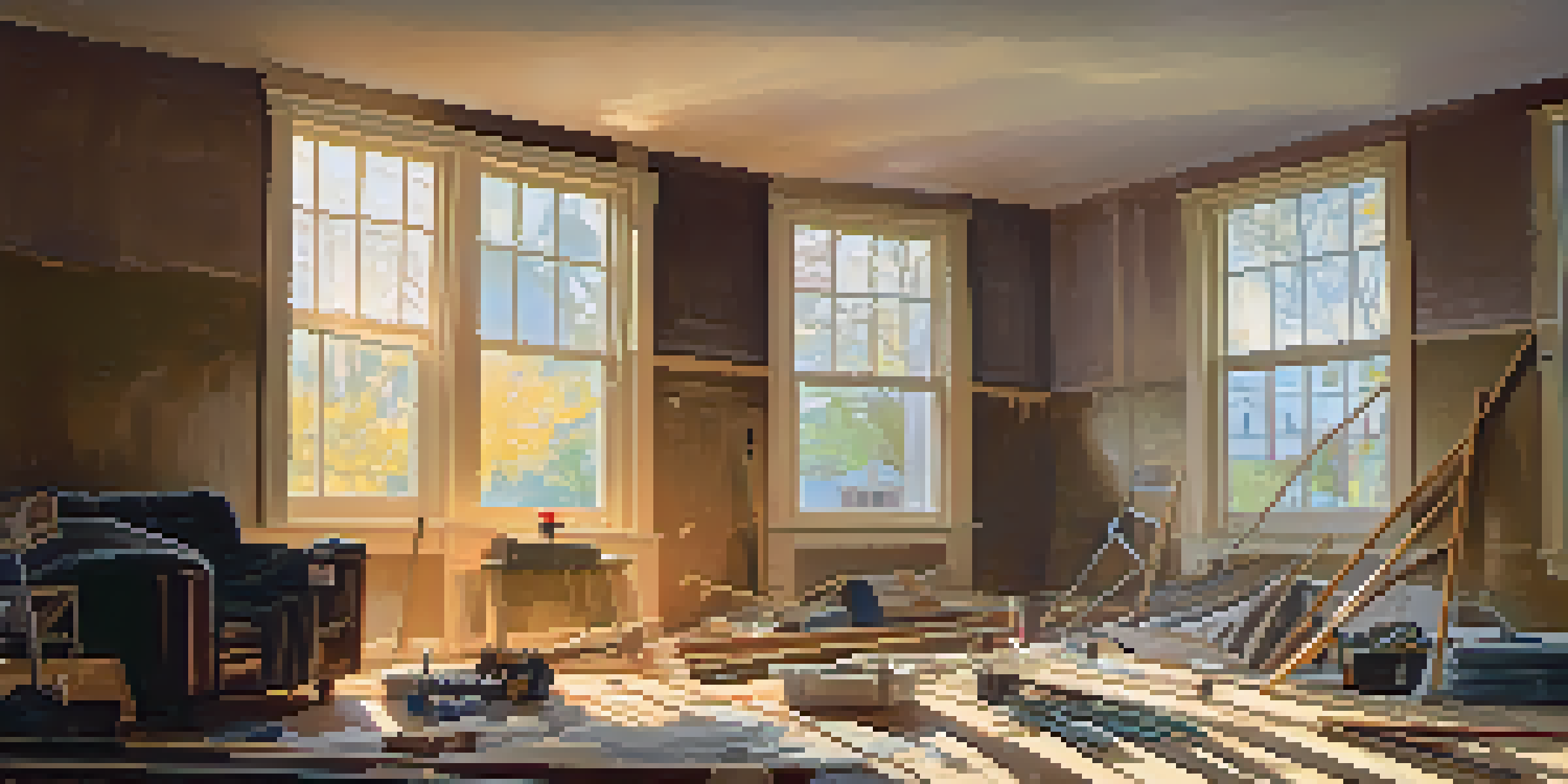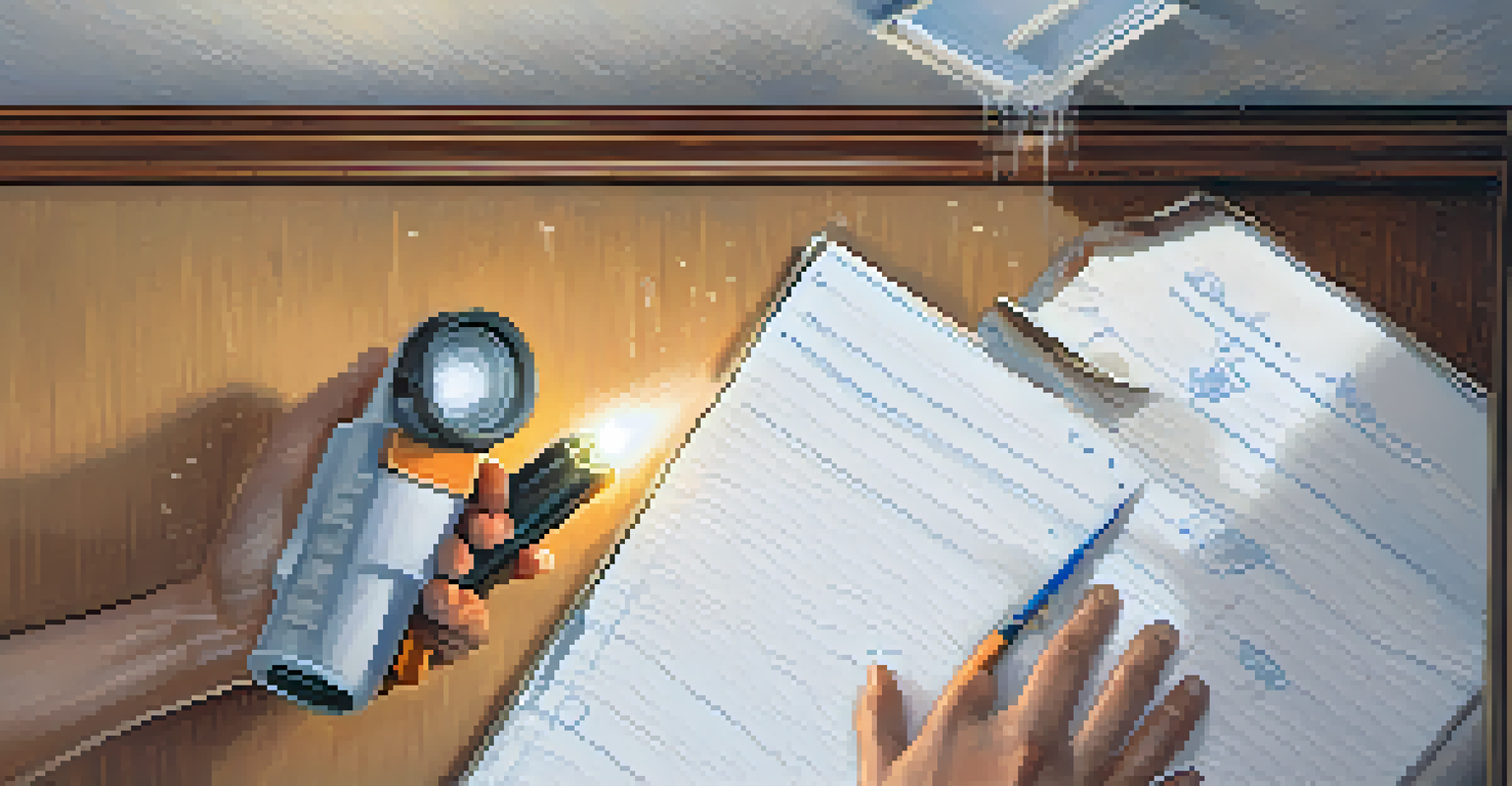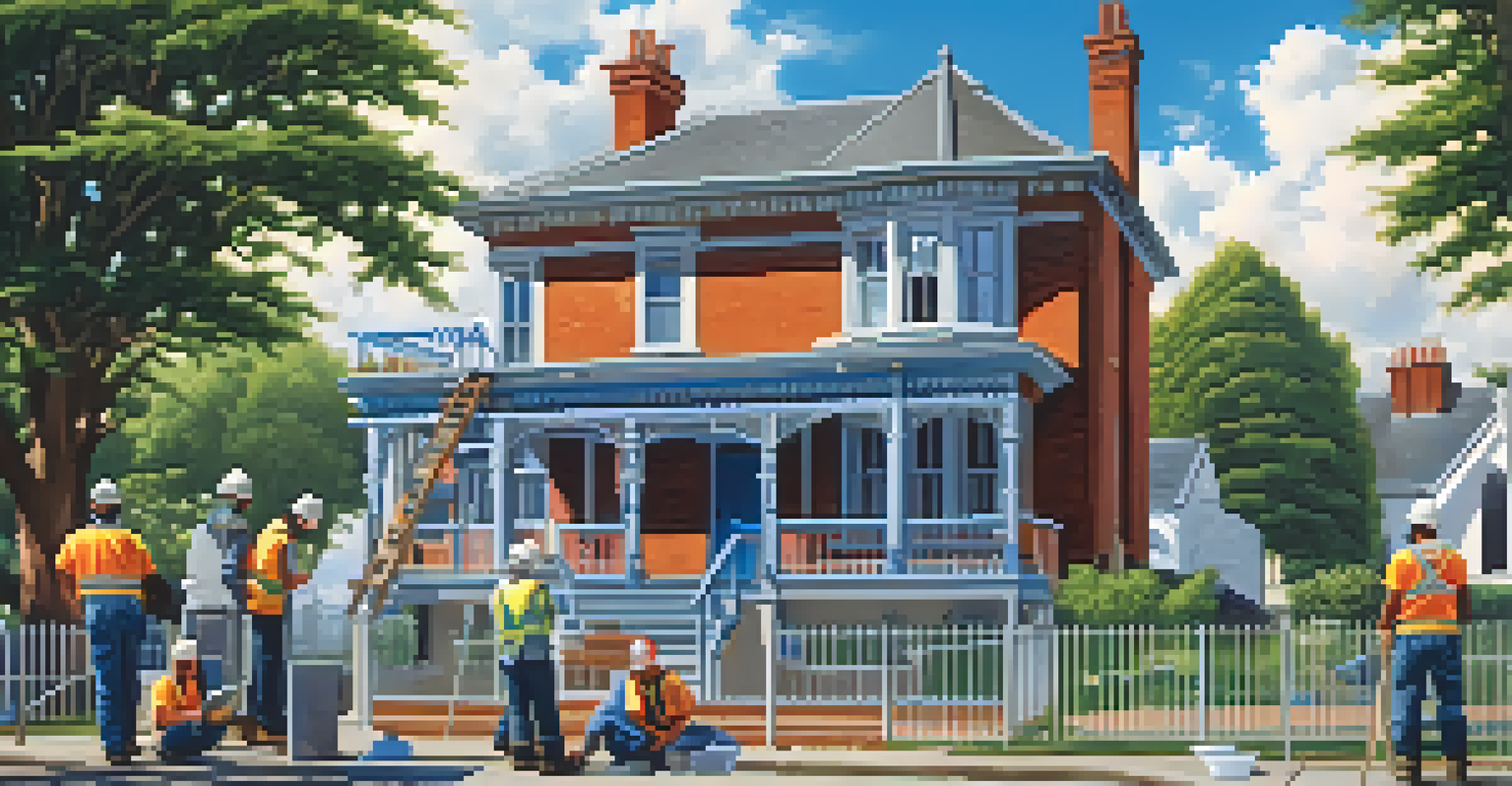Common Myths About Home Inspections During Renovations

Myth 1: Home Inspections Are Not Needed During Renovations
Many homeowners believe that if they’re renovating, there’s no need for a home inspection. This is a misconception that can lead to serious issues down the line. In reality, renovations often uncover hidden problems, and a home inspection can help identify these before they escalate.
An ounce of prevention is worth a pound of cure.
Think of it this way: just like a mechanic checks a car before a long trip, a home inspection ensures your home is safe and sound during renovations. It’s about catching potential hazards early, not just checking off a checklist.
Moreover, having an inspector on board can provide peace of mind, knowing that your renovations comply with local codes and standards. So, don’t skip the inspection just because you’re making improvements!
Myth 2: All Home Inspectors Are the Same
Another common myth is that all home inspectors offer the same level of service. However, this isn’t the case; inspectors can vary widely in terms of experience, expertise, and thoroughness. Choosing the right inspector is crucial, especially during a renovation.

Imagine hiring a chef for a dinner party: you wouldn’t pick just anyone; you’d want someone who specializes in the cuisine you love. Similarly, look for inspectors with specific experience in renovations to ensure they can spot issues that may arise during your project.
Inspections are vital during renovations
Home inspections uncover hidden issues that can arise during renovations, ensuring safety and compliance.
Researching and interviewing potential inspectors can save you from future headaches. Ask about their credentials and past experiences with similar projects to find the right fit for your needs.
Myth 3: Inspections Are Only for Major Renovations
Many people think that home inspections are only necessary for major renovations. This myth can lead to missed opportunities to catch smaller, yet significant, issues. Even minor updates can expose underlying problems that an inspection can reveal.
The best way to predict the future is to create it.
Consider the analogy of a small leak in a roof: it may seem insignificant at first, but if left unchecked, it can lead to extensive damage. Inspections during minor renovations can help identify those leaks, cracks, or electrical issues before they become major headaches.
Ultimately, it’s better to be safe than sorry. A thorough inspection can save you money and stress in the long run, regardless of the scale of your renovation.
Myth 4: Home Inspections Are Only for Buyers and Sellers
Some homeowners think that home inspections are only necessary during the buying or selling process. This is a myth that can leave you vulnerable to costly repairs. In reality, regular inspections are beneficial for anyone, especially when renovations are involved.
Picture your home as an investment: just like you would get regular check-ups for your health, your home needs maintenance checks too. Inspections help ensure that your investment remains sound and doesn’t develop hidden issues over time.
Not all inspectors are equal
Choosing the right home inspector with renovation experience is crucial for identifying potential problems.
By getting an inspection during renovations, you can also enhance the value of your home, making it more appealing to future buyers if you decide to sell.
Myth 5: Inspections Will Delay Renovation Projects
A prevalent fear among homeowners is that inspections will slow down their renovation timeline. While it’s true that scheduling inspections takes time, the benefits far outweigh the potential delays. In fact, inspections can help streamline the renovation process.
Think of an inspection as a roadmap for your project. It highlights areas that need attention, allowing you to address issues before they become roadblocks. This can ultimately save you time and money by preventing unexpected complications.
So, while it may feel like an extra step, incorporating inspections can keep your renovation on track and ensure you’re building a safe and sound home.
Myth 6: Home Inspectors Only Look for Major Issues
Many people believe that home inspectors only focus on significant problems. However, experienced inspectors take a comprehensive approach, examining both major and minor elements. This thoroughness is crucial, especially during renovations, where small issues can lead to bigger problems.
Imagine building a house of cards; if one card is out of place, the entire structure can collapse. Inspections ensure that all aspects of your home are in order, from the foundation to the fixtures. Minor issues, if left untreated, can become major headaches down the line.
Inspections benefit future projects
Home inspectors provide valuable insights that can guide future renovations, enhancing your home's long-term value.
By addressing both small and large concerns, you can maintain the integrity of your renovations and enjoy a safer home.
Myth 7: You Can Skip Inspections if You're DIYing
A common belief among DIY enthusiasts is that they can forgo inspections because they’re doing the work themselves. This myth can be dangerous, as it can lead to overlooking critical safety standards and building codes. Just because you’re handy doesn’t mean you can spot every potential issue.
Consider the analogy of a pilot flying solo; even the best pilots have co-pilots for a reason! Inspections provide a second set of eyes to catch details you might miss, ensuring that your hard work is up to standard.

So, whether you're a seasoned DIYer or a novice, including an inspection in your renovation plan is a smart move that protects both your project and your home.
Myth 8: Home Inspectors Can’t Help with Future Renovations
Lastly, some homeowners believe that home inspectors are only useful during the current renovation. This isn’t true; inspectors can provide valuable insights that benefit future projects as well. Their recommendations can help guide your future renovations and maintenance plans.
Think of an inspector as a wise mentor for your home. They can identify areas that may need attention down the line, helping you plan for future upgrades or repairs. This proactive approach can save you time and money in the long run.
By maintaining a relationship with a trusted inspector, you can ensure that your home remains in top shape for years to come.